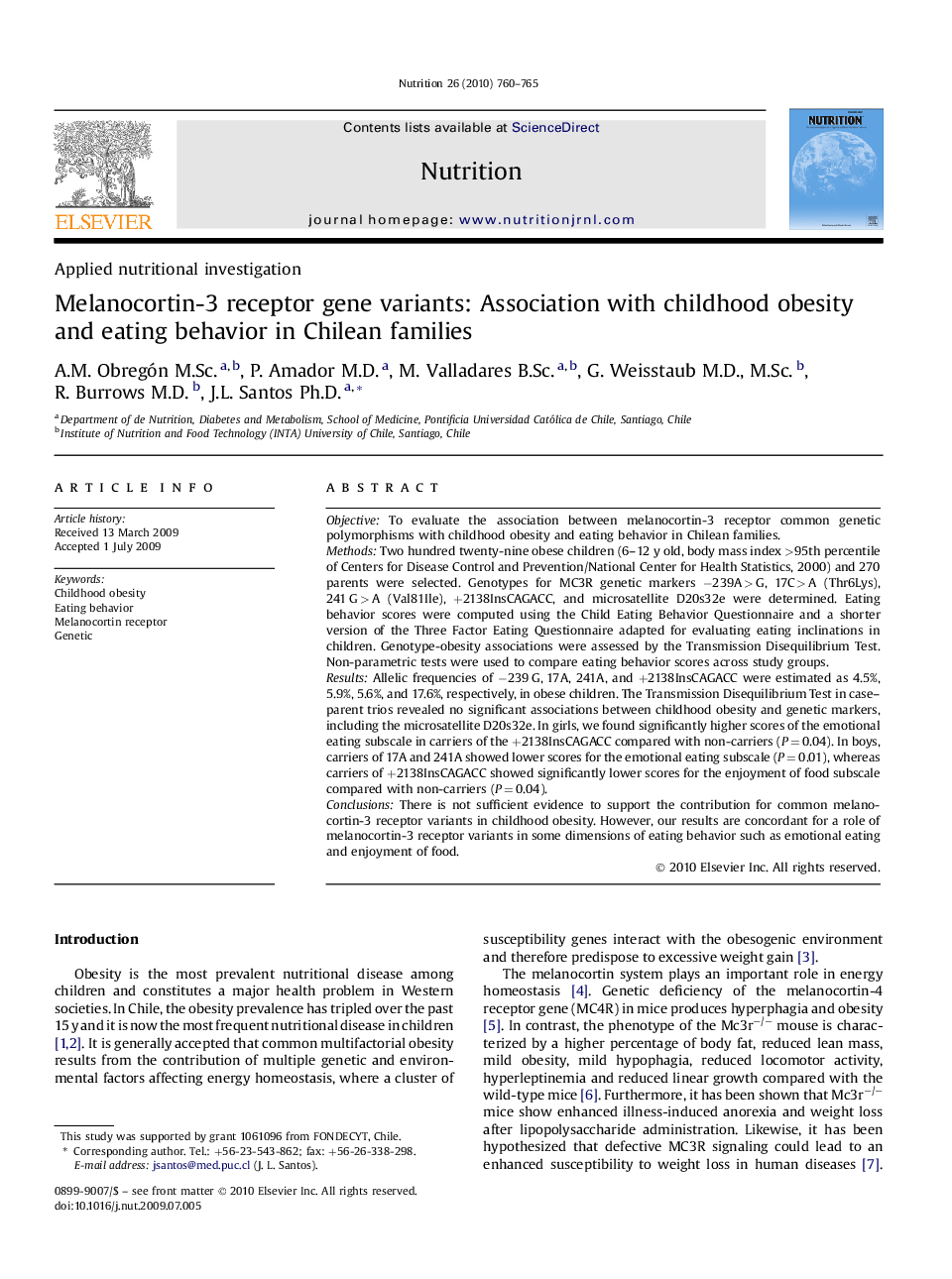| کد مقاله | کد نشریه | سال انتشار | مقاله انگلیسی | نسخه تمام متن |
|---|---|---|---|---|
| 3276711 | 1589679 | 2010 | 6 صفحه PDF | دانلود رایگان |

ObjectiveTo evaluate the association between melanocortin-3 receptor common genetic polymorphisms with childhood obesity and eating behavior in Chilean families.MethodsTwo hundred twenty-nine obese children (6–12 y old, body mass index >95th percentile of Centers for Disease Control and Prevention/National Center for Health Statistics, 2000) and 270 parents were selected. Genotypes for MC3R genetic markers −239A > G, 17C > A (Thr6Lys), 241 G > A (Val81Ile), +2138InsCAGACC, and microsatellite D20s32e were determined. Eating behavior scores were computed using the Child Eating Behavior Questionnaire and a shorter version of the Three Factor Eating Questionnaire adapted for evaluating eating inclinations in children. Genotype-obesity associations were assessed by the Transmission Disequilibrium Test. Non-parametric tests were used to compare eating behavior scores across study groups.ResultsAllelic frequencies of −239 G, 17A, 241A, and +2138InsCAGACC were estimated as 4.5%, 5.9%, 5.6%, and 17.6%, respectively, in obese children. The Transmission Disequilibrium Test in case–parent trios revealed no significant associations between childhood obesity and genetic markers, including the microsatellite D20s32e. In girls, we found significantly higher scores of the emotional eating subscale in carriers of the +2138InsCAGACC compared with non-carriers (P = 0.04). In boys, carriers of 17A and 241A showed lower scores for the emotional eating subscale (P = 0.01), whereas carriers of +2138InsCAGACC showed significantly lower scores for the enjoyment of food subscale compared with non-carriers (P = 0.04).ConclusionsThere is not sufficient evidence to support the contribution for common melanocortin-3 receptor variants in childhood obesity. However, our results are concordant for a role of melanocortin-3 receptor variants in some dimensions of eating behavior such as emotional eating and enjoyment of food.
Journal: Nutrition - Volume 26, Issues 7–8, July–August 2010, Pages 760–765